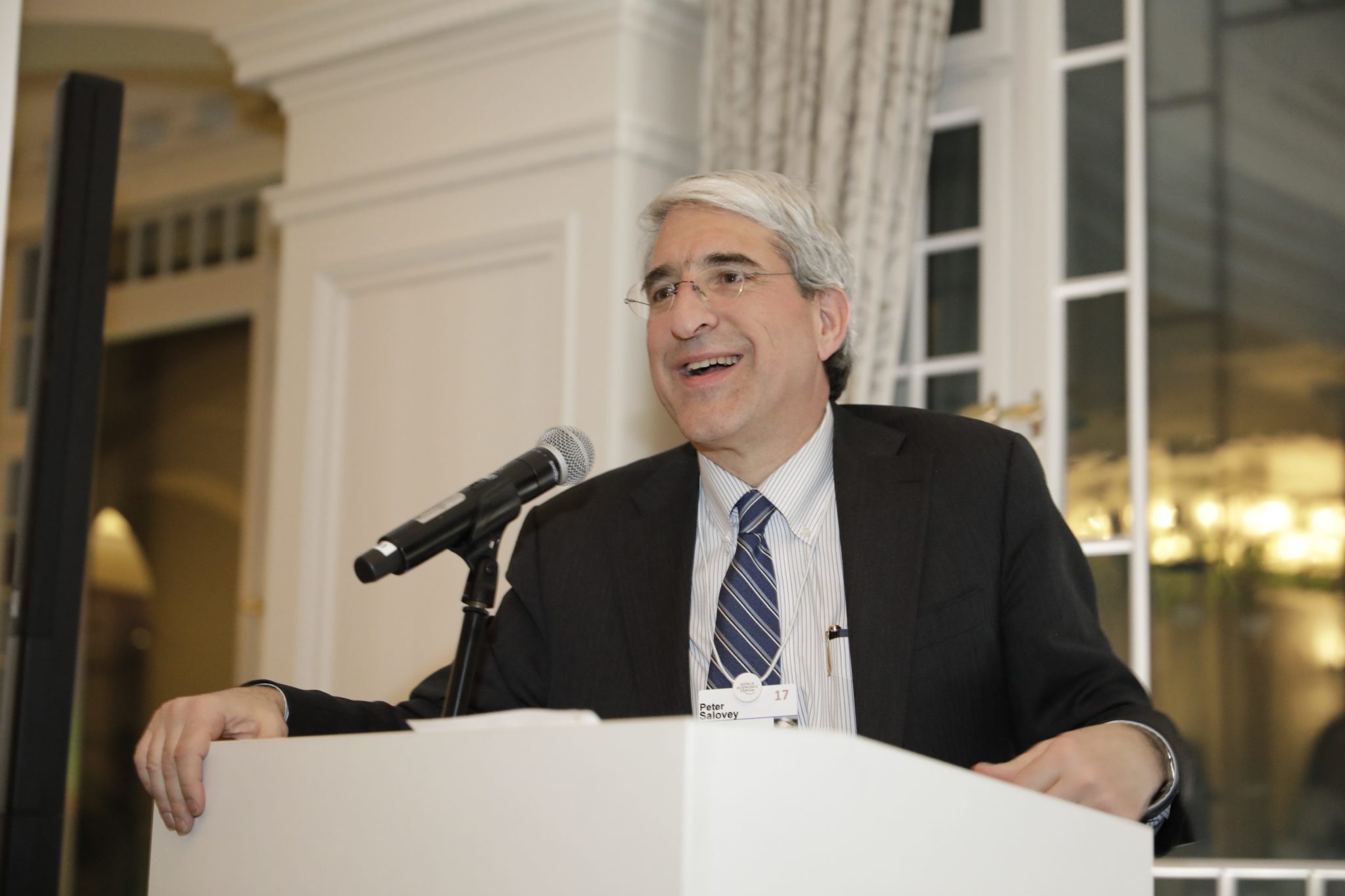
Yale University Office of the President
This story and headline were updated on Dec. 22 to reflect University President Peter Salovey’s latest statement on the Republican tax overhaul.
As President Donald Trump prepared to sign into law the biggest federal tax overhaul in decades, University President Peter Salovey told the News on Thursday that while he opposes the bill’s tax on endowment income, he is “relieved” and “encouraged” that the final version of the plan does not inflict more damage on higher education.
The Republican tax bill, which passed Congress on Wednesday, will subject Yale and 34 other universities to a 1.4 percent tax on endowment returns every year. In fiscal 2017, Yale — which has a $27.2 billion endowment — would have had to pay around $25 million in taxes on its endowment income if such a tax had been in place.
“The tax on investment income breaks the longstanding consensus that charities should not be taxed,” Salovey said in an email to the News. “I worry that Congress will not stop here, and other schools, as well as libraries and museums, will be taxed in the future.”
Still, unlike earlier iterations of the plan, the final version leaves in place tax exemptions for the tuition waivers that Yale and other elite universities grant to graduate students. In his email, Salovey said he was “relieved” that Congress preserved those exemptions as well as other existing financial benefits for students.
As the bill was signed on Friday morning, Salovey further criticized the tax overhaul in another email to the News, attacking the plan’s tax cuts for the rich and cap on the deductibility of state and local taxes.
The cuts will disproportionately benefit the wealthy, contribute to the growing national debt and ultimately be used as a reason to attack safety net programs, Salovey said. He added that the bill’s cap on the deductibility of state and local taxes will disproportionately hurt residents of New Haven and Connecticut.
“The claims about how much economic growth will be stimulated by these changes are very much overstated,” Salovey wrote. “I feel quite negatively about the impact of the bill on the endowments of universities, including Yale, as well as the impact of the bill on our nation more generally.”
Over the past month, Salovey and other university presidents across the country have lobbied against various provisions in the tax bill, which arrived at President Donald Trump’s desk earlier on Wednesday after winning approval in the U.S. Senate and House of Representatives. The University has raised concerns with congressmen and Trump administration officials and encouraged prominent alumni to reach out to legislators, Vice President of Communications Eileen O’Connor told the News in an email last month.
O’Connor said the tax plan has been one of Salovey’s central focuses this fall and that other University officials have worked with peer institutions, professional groups and student organizations to rally against provisions in the bill.
According to O’Connor, Salovey gave “impassioned” last month at a recent meeting of the Consortium on Financing Higher Education about “continuing the fight.” Still, beyond that meeting, Salovey has yet to speak publicly about the bill.
Salovey told the News he has discussed the tax legislation with “several” members of Congress, but declined to name the particular officials.
“I do not normally discuss my conversations, which I consider private and confidential,” he wrote in an email. “I have also made a considerable effort to engage leadership of other schools, because this bill was an issue where all voices mattered.”
In statements over the past few weeks, Salovey has expressed concern about the tax bill’s adverse impact on higher education, saying he is “deeply concerned” that the bill will “harm the country.”
But his initial remarks on the tax bill were relatively demure compared to a statement released this week by Harvard President Drew Faust.
Following the bill’s passage on Wednesday, Faust decried its “damaging impacts,” saying it could limit the university’s capacity to fund financial aid and other programs.
In earlier interviews with the News, Salovey has said he will only speak out about political issues that directly affect University life, such as federal funding for research and immigration policies that affect students and faculty. In August, he wrote a public letter to Trump defending the Deferred Action for Childhood Arrivals program. And since the 2016 election, he has sent several campuswide emails vowing to protect Yale’s undocumented students and other immigrant community members.
Compared to his response to the immigration issues, however, Salovey has remained relatively quiet on the tax bill, preferring to lobby congressmen in private meetings rather than through public statements.
Yale spent $397,000 on lobbying in the first three quarters of 2017, according to federal forms.







